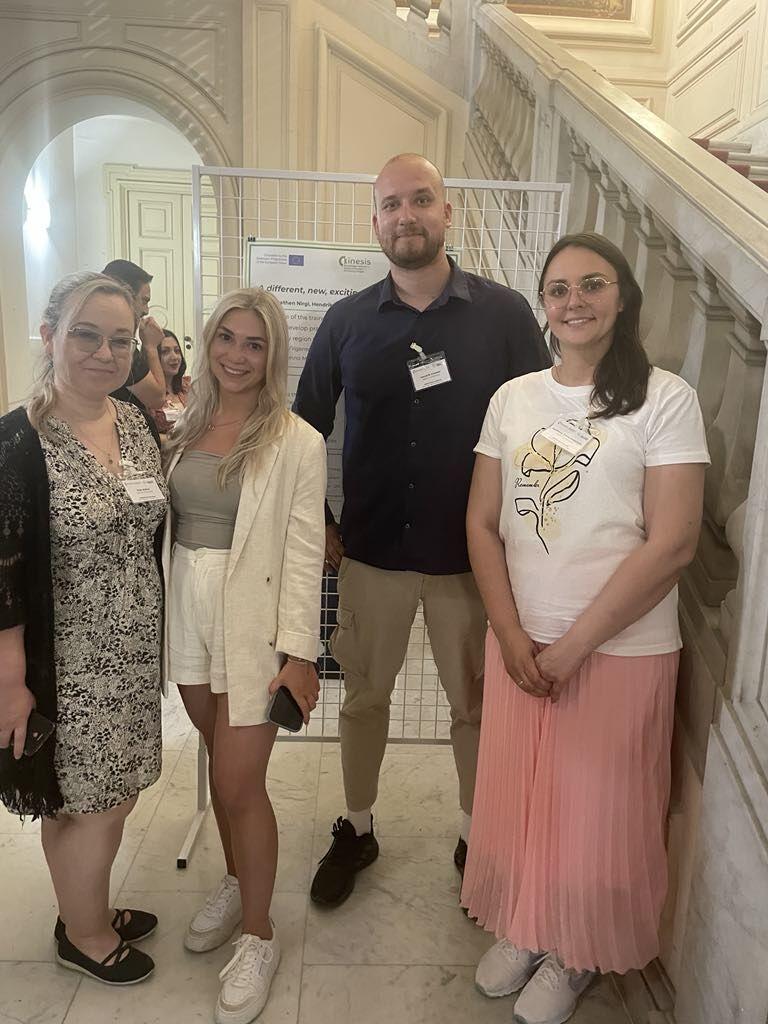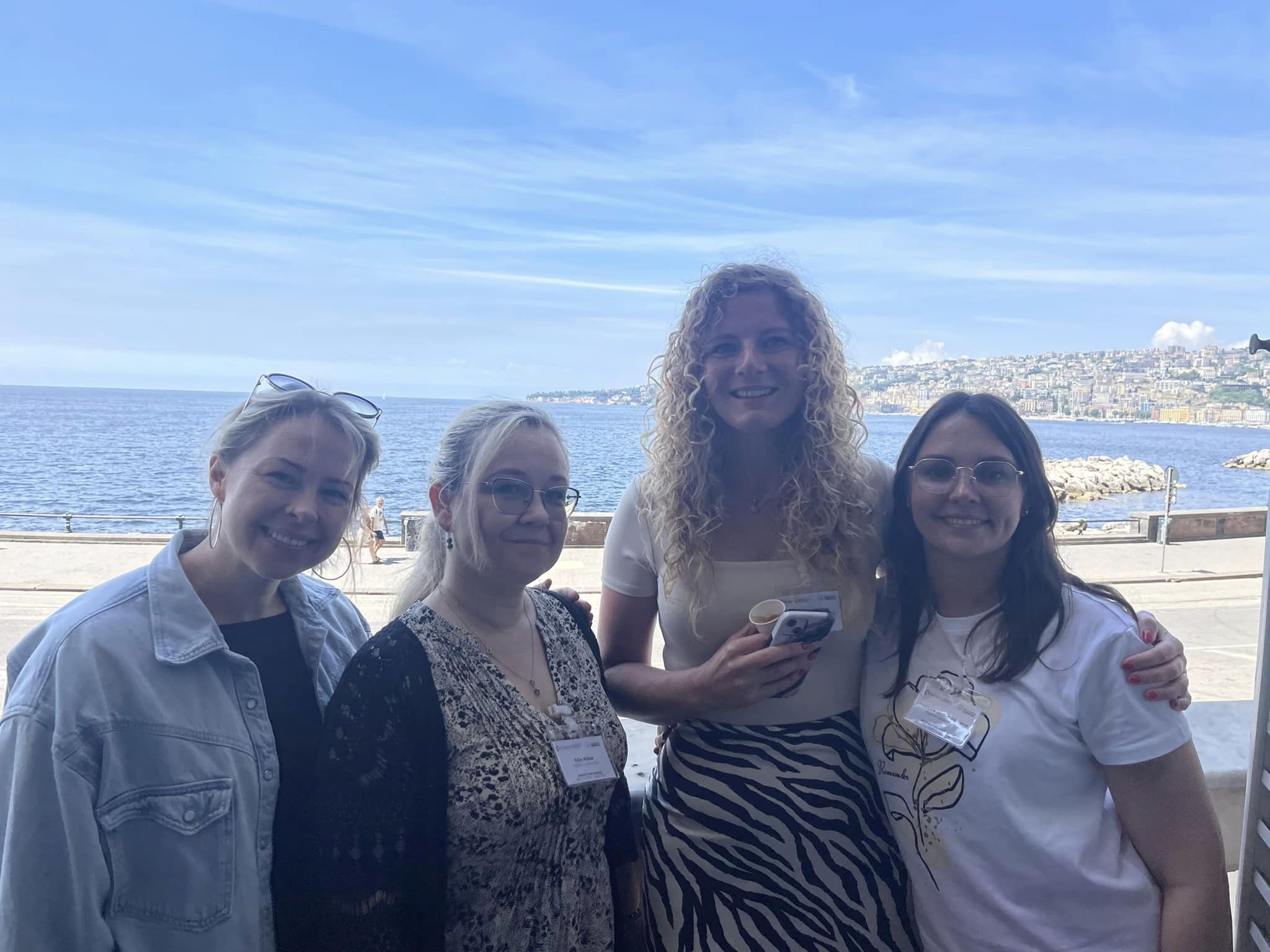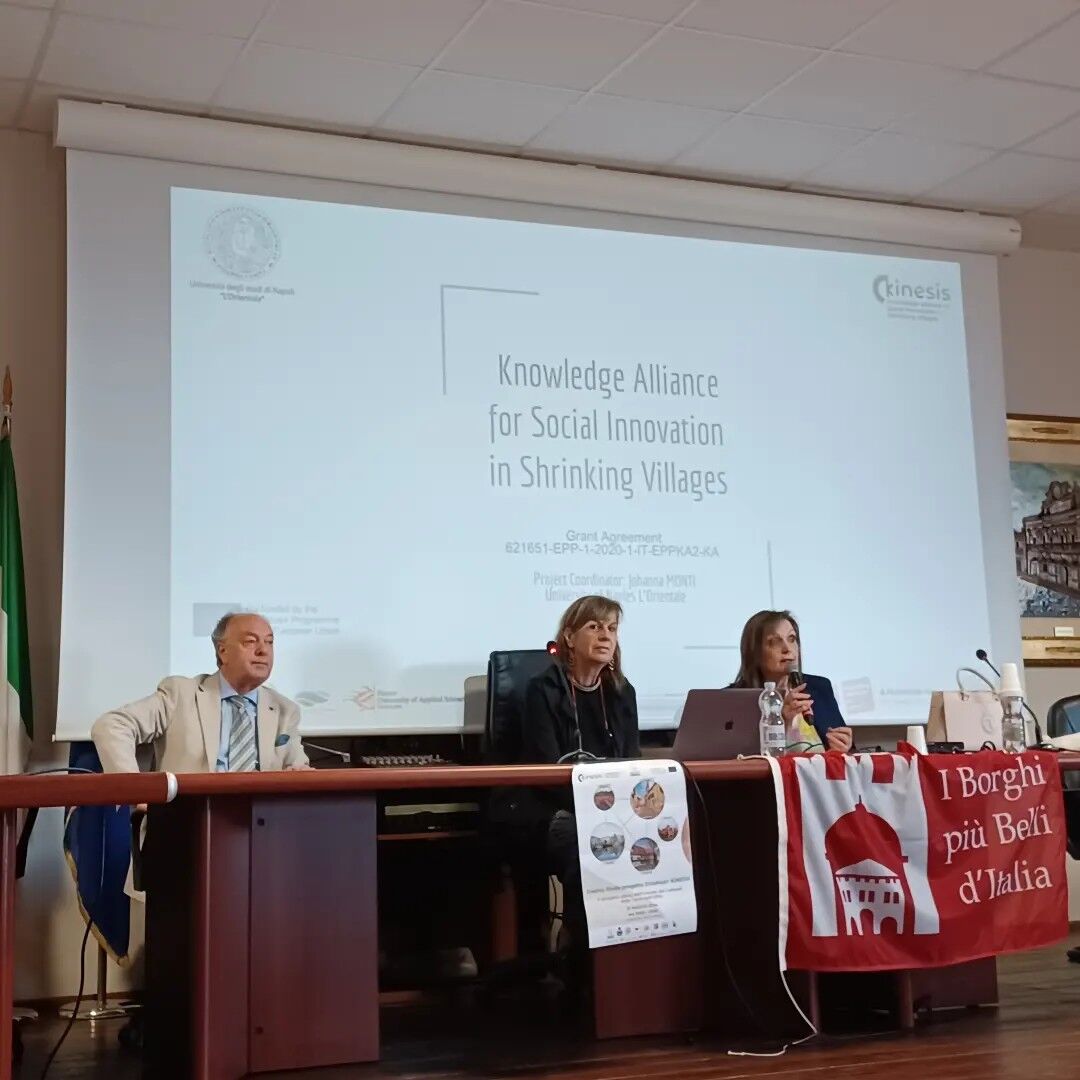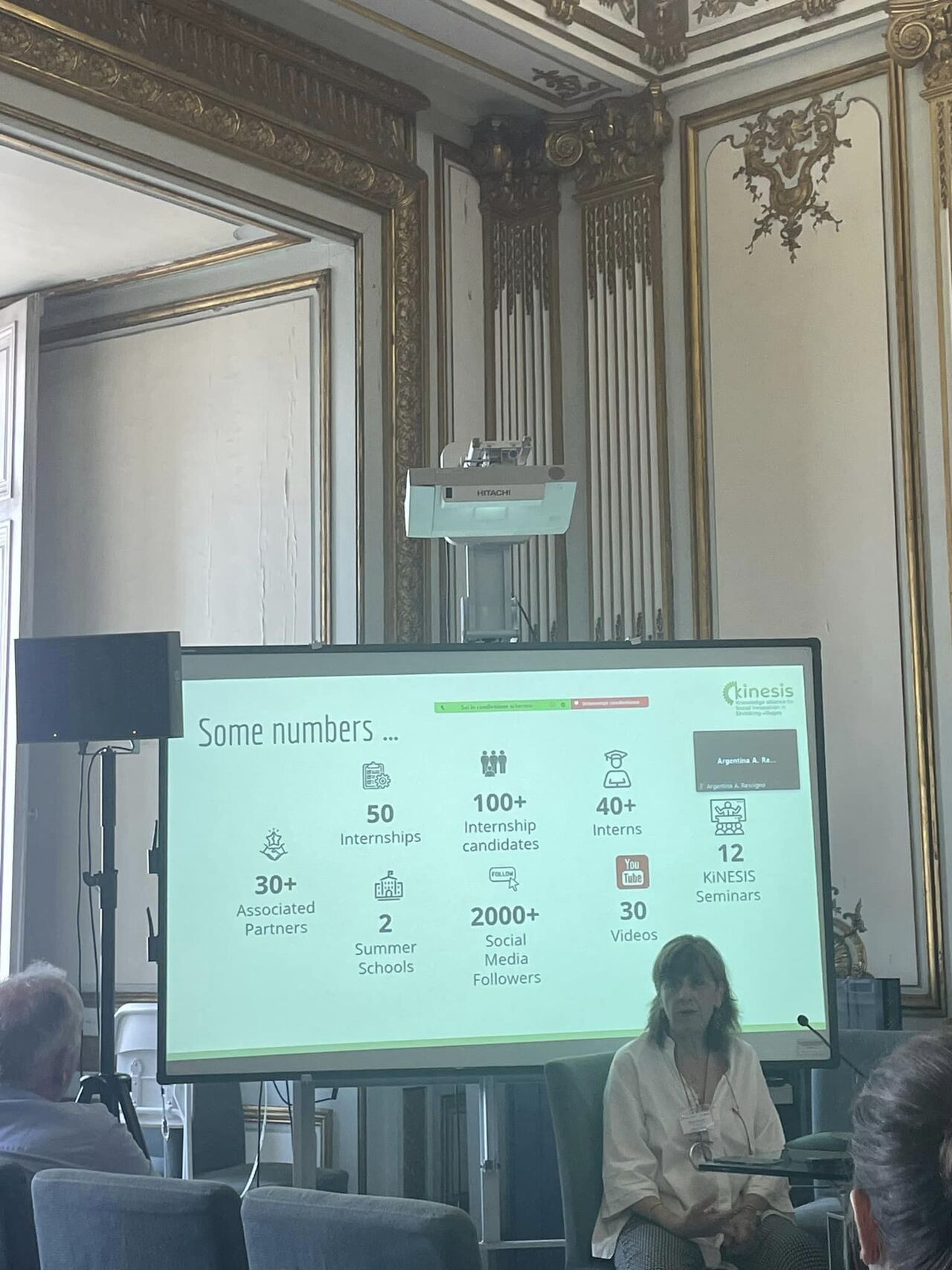Celebrating the success of the KiNESIS project: Final meetings in Italy
On May 29th-31st, the KiNESIS project team, including Tallinn University’s lecturer and project coordinator Dr. Audronė Urmanavičienė, researcher Triin Kübar, and Võrumaa Development Center representative Kristiina Valk, attended the project's final meetings in Italy. Held at the University of Naples "L'Orientale" and the Frigento community, these meetings highlighted the project's achievements, including 50 internships, 12 seminars, two summer courses and over 30 established partnerships.

During this event, the project's partners from Italy, Germany, Spain, Estonia, and the Netherlands presented and discussed the project's best practices, case studies, and milestones achieved over the past years.
Tallinn University researchers used the project to look into depopulation affecting Estonina rural regions and to strengthen the cooperation with organizations in Võru. SOGOLAs students Luise Grethen Nirgi and Hendrik Ojaveer presented their research project at the final conference in Naples - A Different, New, Exciting, Sustainable Tourism- conducted in the Frigento community, Italy.

The traineeship scheme offered an exciting alternative to traditional Erasmus learning mobility, with research projects in different fields related to rural development. For example Tallinn University students developed a tourism marketing strategy for a Fitero area, studied the economic impact of Camino Aragones pilgrimage route, deducted a qualitative study on women's safety on the Santiago de Compostela pilgrimage route in Spain, as well as analyzing youth migration and interventions in the Zeeland region in the Netherlands.

This event was a culmination of the KiNESIS project efforts and a celebration of the project achievements and results obtained in the several rural areas involved. The Kinesis project was a three-year initiative (2021-2023, extended to June 2024) co-funded by the Erasmus+ Programme of the European Union. The primary objective of the KiNESIS project was to establish a Knowledge Alliance among academia, NGOs, communities, local authorities, and businesses. This alliance aims to develop a program of multidisciplinary activities in shrinking areas to promote and foster ideas, projects, workforce, productivity, and attractiveness.

During the final meetings it was agreed that students’ exchanges in shrinking communities should be continued by all partners, because it created a huge value to local communities and students as well. Students who took part in our program had a unique experience abroad and learned a lot about different cultures and community development. At the same time, local communities gained some practical insights on dealing with shrinkage problems in their areas. More stories about our students’ experiences and project’s impact you can find on the KiNESIS project website: https://www.kinesis-network.eu/homesite/532/1/the-kinesis-experience.html